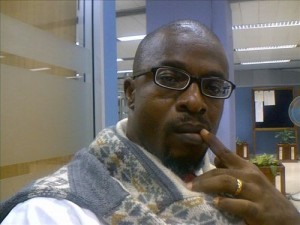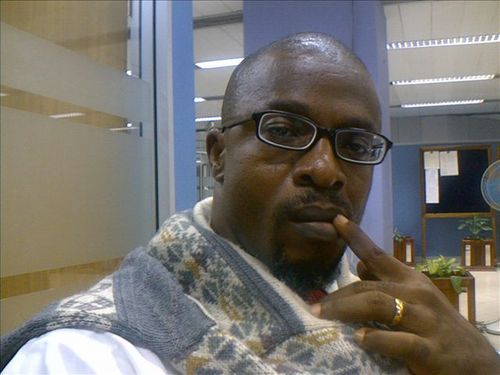
Come St. Valentine’s Day, 2015, I would not vote in the general elections scheduled for that day.
I also did not vote in the 2011 general elections.
Then, I was certain that the larger number of our compatriots were mistaken on the “I had no shoes growing up” narrative of the incumbent president. Arguably, there was a narrow sense in which they were justified in hoping that “one of us”, one who had known privation as a child, would rule differently from the disorderly lot that had governed us thus far. That his measure of our want would no longer be whether (and how) we rummage through garbage bins, but how his administration would help move our garbage in an environmentally friendly way, amongst other deliverables.
I was, however (and remain), indifferent to the substance of this narrative. Truth is that it never mattered whether the president was shod as a child or not. After all, as children, most of us (boys) ended up trekking home barefooted, anyway, after losing our footwear at “football matches”. In those days, our matches were played with “monkey posts”; and our footwear and other colourful items delimited those quaint contraptions.
What mattered to me four years ago was that we committed to electing into office, as president, someone who had avoided the “presidential debate process”. This was as ahistorical, as it was near criminal. For one who had seen how important the 1993 presidential debate between late MKO Abiola of the Social Democratic Party (SDP) and Bashir Tofa of the National Republican Convention (NRC) was to the outcome of that process, the “presidential debate” became a sacrosanct “condition precedent” to my participating in any elections — as a voter.
I suspected, then, and still do, that the decision by the incumbent president to avoid the debates was no less informed by his party’s understanding of how the 1993 debate contributed to upending Bashir Tofa’s campaign. The spectacle of our first would-be PhD-president tying himself in knots in a bid to avoid talking against General Muhammadu Buhari (hardly renowned for his conversational skills) was all that I needed to know four years ago about how this country was going to be run.
Would that I could dismiss all that as “history”. For, again, we are at the cusp of new possibilities for our commonweal. And I dread my compatriots’ ability to act in their own enlightened self-interest. Last time around, we wanted very much to put “someone like us” in office. We hoped that he would thus be better able to sympathise and empathise with our miserable lot.
Today, as we run into next year’s vote, the worry is with the proliferation of knaves in our political space. And as enjoined by the nursery rhyme “Rub a dub dub”, we are minded to turn out all the knaves in our political tub. Actually, whatever may have been their crime, the butcher, the baker, and the candlestick maker in that children’s rhyme, do not hold a candle to the gang that has lately been in charge of our national affairs.
And yet, knaves, as we all know (remember what the “Queen of Hearts” did to hers?) are uniquely persuaded by slight chastisement from a “wand of noble wood”. The “Queen of Hearts” did beat her thieving knave “full sore”. After which, not only did he return the tarts he’d earlier stolen, but, in addition, pledged never to steal again.
This, then, is our main assignment at the polls next year: how do we chastise our knaves so thoroughly that they vow to steal no more? In the light of how badly we have been ruled, and the near criminal indifference of our leaders to the daily evidence of our sufferings, this does appear, from our current vantage, an extremely difficult goal.
However, like the “to do” about shoes at the last election, this difficulty is more apparent than real. Turf the Peoples Democratic Party out. Vote in the opposition, however constituted. And this is where I fear. I am reminded at every turn that the opposition comprises an especially distasteful assortment of unprincipled principals and their psittacine sidekicks. Most only just left the ruling party, anyway, so that’s not surprising.
But the point we make by voting the ruling party out, even when we vote their clones in is that we will no longer tolerate mediocre or thieving rule. Now, coming in on the back of this sentiment, we can only hope that the opposition understands the nature of the new contract that we are ready to enter into with our rulers: “zero tolerance” for thieving practices. If, therefore, they continue in the tradition to which they are heirs and/or are familiar, then come next elections, we will turf them out too.
This is how we deal with our domestic servants who try to rob us out of pocket. Why should we act differently regarding our public servants? Besides, there is this additional boon from voting in the opposition: we have bruited about the maturing of our democracy because it has peacefully handed over power to different administrations. But all of these have happened within one party over the last 15 years.
A vote for the opposition next year would raise the performance bar for our democracy that much higher by effecting a peaceful change between parties.
I fear though, that, as with the case of the missing shoes at the last general elections, our people are still searching for real change. And so, in 2015, I’ll “siddon look”. In the increasingly fading hope that they will be ready in my generation and then my vote would finally have some meaning.
